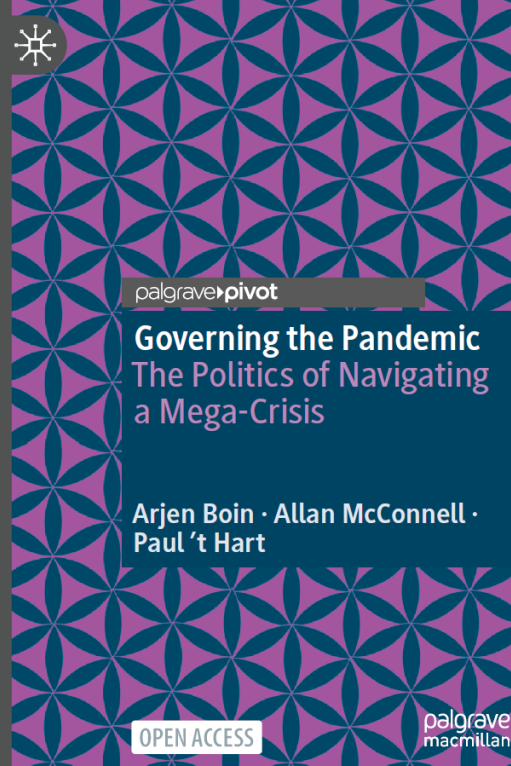Thank you for your message. The IPPA team will get back to you shortly. You first need to login here.

Governing the Pandemic: The Politics of Navigating a Mega-Crisis (2021)
(Publisher : Springer)
Author(s) : Arjen Boin, Allan McConnel & Paul 't Hart
- Arjen Boin
is Professor of Public Institutions and Governance, Institute of Political Science, Leiden University, the Netherlands. He has published widely on topics of crisis and disaster management, leadership, institutional design and organizational issues. He is also a managing partner at Crisisplan BV and founding member of the European Societal Security Research Group.
- Allan McConnell
is Professor of Public Policy at the University of Sydney, Australia. He has published extensively on the politics of risk and crisis management, crisis exploitation, warning signs, contingency planning, policy success, policy failure and fiascos, policy evaluation, policy processes, wicked problems, hidden agendas, symbolic policies and policy inaction.
- Paul 't Hart
is Professor of Public Administration at Utrecht University School of Governance, the Netherland, and a core faculty member of the Australia New Zealand School of Government (ANZSOG), Australia. His extensive publication record addresses issues such as successful public governance/policies, organisations and collaborations; political and public service leadership, and crisis politics and crisis governance.




